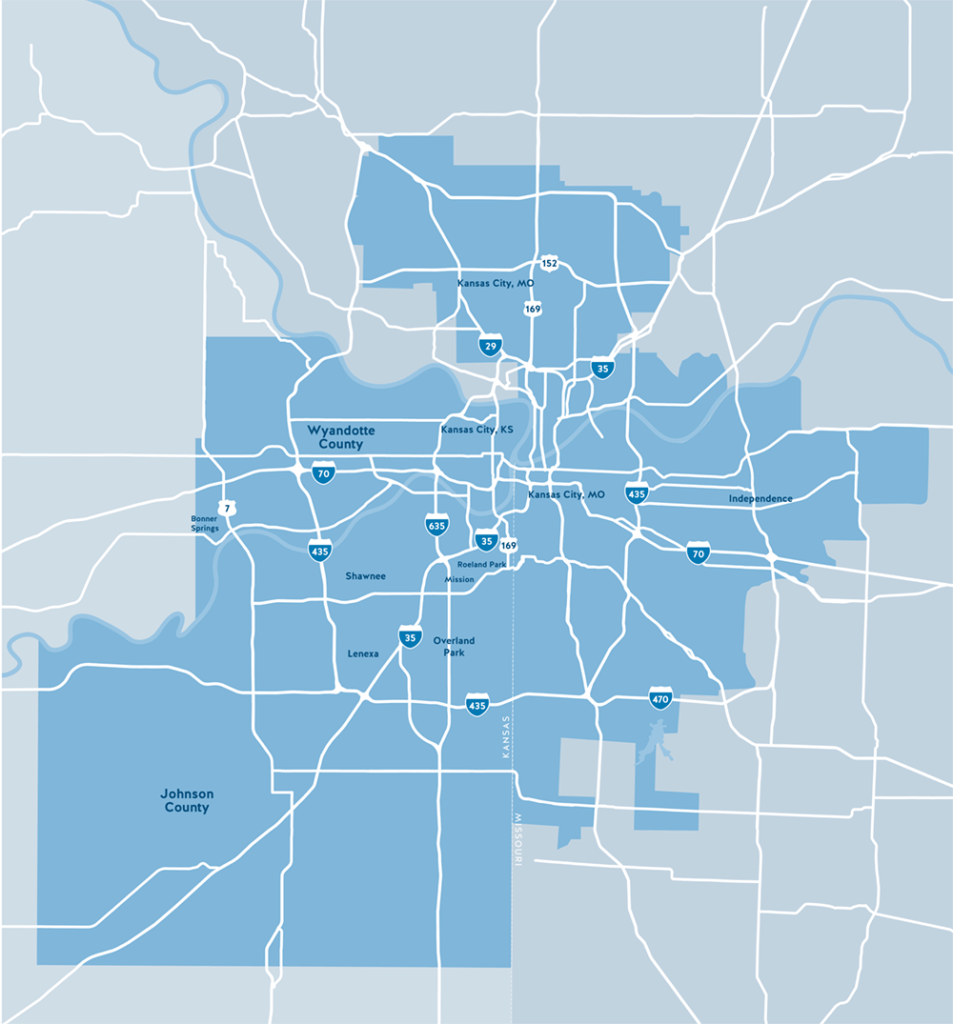RideKC Freedom On-Demand Pilot: Leveraging Existing Contracts for On-demand Paratransit
20 minutes Author: Shared-Use Mobility Center Date Launched/Enacted: Nov 20, 2017 Date Published: May 30, 2018

This analysis is designed to complement SUMC’s webinar on Shared Mobility for People with Disabilities — Challenges and Opportunities for Paratransit
Brief Summary
- The Kansas City Area Transportation Authority (KCATA) partnered with TransDev in 2017 to create RideKC Freedom on Demand, an app-based ridesharing service providing accessible, subsidized rides to paratransit users in two study areas.
- The one-year pilot program saw immense popularity immediately, with over 1,000 trips per month. This demand drove KCATA to increase its fleet size from 18 wheelchair-accessible vehicles to 51.
- The service initially resulted in a 40% savings over traditional paratransit. Still, the service’s popularity meant that the total cost was roughly the same. KCATA is evaluating the sustainability of the pilot.
Introduction
The Kansas City Area Transportation Authority (KCATA) and Transdev have partnered to create the new app-based, ridesharing service, RideKC Freedom On-Demand. Launched on March 1st, 2017 to two study areas, this one-year pilot program provides accessible, on-demand, and subsidized rides to paratransit users in the study areas (Fig. 1), and is available to all riders (and paratransit riders, without a subsidy) throughout the KCATA service area.
To use this service, those who qualify under the American with Disabilities Act (ADA) would pay $3 for the first 8 miles and $2 each mile after, those who are 65 years old or older would pay $5 for the first 8 miles and $2 each mile after. The 8-mile base for the On-Demand program is based on data from traditional program, which averages 7-1/2 miles/trip. Non-eligible users would pay $10 for the first 5 miles and $2 each mile after – with part of the fare from non-ADA rides helping to subsidize trips for disabled riders. These costs cover up to four passengers, total, up to four trips per day. (Table 1)
Freedom On-Demand and Traditional Paratransit
Funding and Procurement
The on-demand pilot falls under the KCATA innovative programs budget, which is self-funded.
A portion of the expense growth related to these initiatives will be covered with federal funding and other local sources for operations and capital. However, the remaining budget growth resulting from these new initiatives will require use of $1,784,790 from the reserve balance in 2017. In the coming year, leadership will propose changes to the reserve usage policy to limit use to innovative or new programs or operating emergencies. Further, the revised policy will recommend that the minimum reserve balance will be 20% to 30% of the annual operating budget expense.[1]
The procurement process did not require such innovation, as TransDev (app) is already under contract for the “traditional” paratransit, and the taxis already fulfill extra demand, so the on-demand model is an extension and reformulation of existing programs, from a procurement perspective. Under the agreement, TransDev returns five percent of the revenue from retail/non-ADA rides returns to the innovative programs fund.
Early Results
The limited funding largely drove the circumscribed study areas, and KCATA’s caution appears to be merited. In the first four months, the service has recorded over 11,000 trips, beginning with 1,134 trips in May 2017 to 4,368 trips in August 2017. The service logs over 1,000 trips per week, beginning in August 2017. Initially, the on-demand service had access to 18 wheelchair accessible vehicles (WAV), but demand drove the KCATA to purchase and lease back WAVs to bring the number in service to 51. While the service has resulted in a 40% savings over traditional paratransit ($100,000 through August 2017), its popularity means that the absolute cost is roughly the same as traditional paratransit.
An initial survey of 300 KCATA Freedom On-demand users yielded 75 respondents. Of those, 70-75% reported satisfaction with the pilot. In addition to responding to the WAV demand, the survey yielded insight into interaction with the technology. Traditional paratransit is a cash payment system with call-in scheduling, while the app and credit payment options required education on all sides.
Conclusion
As of this writing, KCATA is still evaluating the sustainability of the pilot, and have hired a consultant to evaluate the program by the end of the calendar year. The idea of spreading the paratransit costs over a wider on-demand program fulfills the spirit of the Federal Transit Agency’s desire for transit to not just fulfill ADA requirements, but to incorporate the service into a more universally accessible service. If the service expands, either to the full-service area or to incorporate transportation network companies (TNC), KCATA will need to examine the funding and procurement strategies.
For more information download the KCATA 2017 Budget